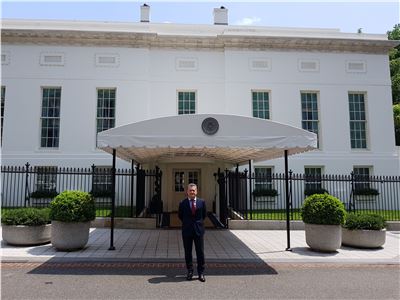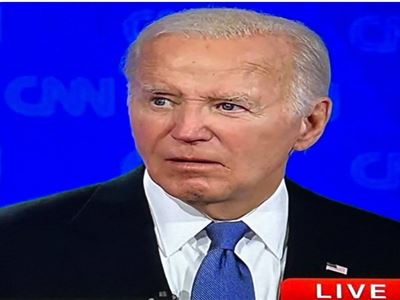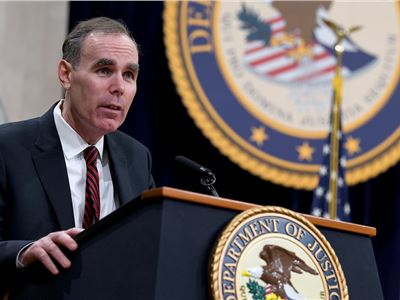In a political landscape marked by unexpected twists and turns, former President Donald Trump positions himself for a potential historic victory in the upcoming presidential election in New York. Drawing parallels to Ronald Reagan's triumphs, Trump’s campaign has gained remarkable momentum, highlighted by the recent successful rally in the Bronx. This event, coupled with changing voter sentiments and the current socio-political climate, suggests that Trump could achieve what many considered impossible.
The rally in the Bronx was not just a political event but a signal of a broader shift within New York’s electorate. Thousands gathered to hear Trump speak, showcasing a diverse crowd that cut across traditional party lines. The energy and enthusiasm at the rally underscored a growing support base in a borough that has historically leaned Democratic.
This successful rally is emblematic of Trump's ability to galvanize support in areas that were once considered out of reach. It mirrors Reagan's strategy in the 1980s, where he attracted blue-collar workers and urban voters who felt disconnected from the Democratic Party’s policies. Trump's message of economic revitalization, law and order, and a strong stance on national sovereignty resonates with many who feel left behind by the current administration.
Recent polls have shown a surprising shift in voter sentiments. A CNN poll, traditionally critical of Trump, revealed that he currently leads with 49% support compared to Biden’s 43%. This significant change indicates a growing dissatisfaction with the status quo and a desire for new leadership.
Several factors contribute to this shift: Economic instability and inflation have hit New Yorkers hard. Many voters feel that the current administration has failed to address these issues effectively. Trump’s promises of tax cuts, deregulation, and a focus on job creation resonate with those who are struggling financially.
Crime rates have been a significant concern for many New Yorkers. Trump’s tough stance on law and order and his support for law enforcement are appealing to voters who feel that their communities are becoming increasingly unsafe.
Much like Reagan, Trump benefits from a growing anti-establishment sentiment. Many voters are tired of career politicians and are looking for an outsider who can bring real change. Trump’s narrative of fighting against a corrupt system and his battles with the Department of Justice (DOJ) enhance his appeal as a maverick willing to take on entrenched interests.
Trump’s ongoing legal battles, particularly with the DOJ, are a double-edged sword. While they provide ammunition for his opponents, they also bolster his image as a political outsider fighting against a biased system. The potential for these issues to escalate to the Supreme Court adds another layer of complexity. A Supreme Court decision in Trump’s favor could significantly alter the political landscape, validating his claims of being unfairly targeted and potentially swaying undecided voters in his direction. This scenario echoes Reagan’s era, where legal and political battles were crucial in shaping public perception and voter behavior.
Reagan’s victory in the 1980s was characterized by his ability to connect with ordinary Americans, promising a return to prosperity, strength, and national pride. Trump’s campaign is tapping into similar sentiments, promising to restore America’s greatness, protect its borders, and revitalize its economy.
The successful Bronx rally and the changing voter sentiments reflect a yearning for leadership that resonates with Reagan’s era. Trump’s ability to communicate directly with voters, bypassing traditional media filters, and addressing their concerns head-on is reminiscent of Reagan’s effective communication strategy.
The recent rally in the Bronx has sparked many reactions from commentators across the political spectrum. Here’s a look at what some of the most prominent voices are saying, both for and against Trump’s event and his prospects in New York.
Pro-Trump Commentary
Sean Hannity (Fox News)
A staunch Trump supporter, Sean Hannity praised the rally as a sign of the former president's enduring popularity and influence. He highlighted the diverse and enthusiastic crowd as evidence that Trump’s message resonates beyond his traditional base. Hannity emphasized the significance of the event in a Democratic stronghold like the Bronx, predicting it could be a bellwether for broader support in urban areas.
"The turnout in the Bronx shows that Americans from all walks of life are fed up with the current administration’s failures. Trump brings hope and real solutions to those who need it most."
Laura Ingraham (Fox News)
Laura Ingraham echoed Hannity's sentiments, noting that the rally’s success demonstrates Trump’s ability to connect with voters who feel neglected by the Democratic Party. She argued that economic concerns and issues of public safety are driving more people to support Trump, seeing him as a champion of their interests.
"Trump's message of economic revival and law and order is exactly what many New Yorkers want to hear. The Bronx rally was a powerful reminder that his appeal is far from fading."
Mark Levin (Conservative Radio Host)
Mark Levin praised Trump’s performance at the rally, calling it a masterclass in political communication. He pointed out that Trump’s ability to draw large crowds and energize supporters is unmatched in the current political landscape. Levin also suggested that the rally could begin a significant political shift in New York.
"This rally in the Bronx is just the beginning. Trump is reigniting the flame of American greatness, and it’s clear that people are responding to his call for change."
Anti-Trump Commentary
Rachel Maddow (MSNBC)
Rachel Maddow criticized the rally, arguing that the large turnout doesn’t necessarily translate into widespread support across the state. She suggested that the event was more about energizing the base rather than winning over undecided voters. Maddow also pointed to Trump’s ongoing legal issues, which she believes will hinder his gaining traction in New York.
"While Trump can still draw a crowd, it’s important to remember that these rallies are not reflective of the broader electorate. His legal troubles and divisive rhetoric will ultimately limit his appeal."
Chris Cuomo (NewsNation)
Chris Cuomo offered a nuanced perspective, acknowledging the rally’s impressive turnout but questioning its long-term impact. He noted that while Trump’s ability to mobilize supporters is noteworthy, the broader New York electorate remains skeptical of his leadership. Cuomo highlighted the importance of winning over moderates and independents, which he believes Trump has not yet achieved.
"Trump’s rally in the Bronx was a show of strength, no doubt. But the real test will be whether he can convert this enthusiasm into votes, especially among those who are still on the fence."
Charles Blow (The New York Times)
Charles Blow was critical of the rally, arguing that it represented a continuation of Trump’s divisive and inflammatory tactics. He suggested that the rally’s focus on crime and economic issues is a scare tactic designed to exploit fears rather than offer real solutions. Blow also expressed doubt that Trump can win over the diverse electorate of New York.
"Trump’s rhetoric at the Bronx rally was more of the same fearmongering we’ve seen before. New Yorkers are looking for real leadership and solutions, not more division and chaos."
The reactions to Trump’s Bronx rally highlight the deep divide in American political commentary. Supporters see the event as a sign of Trump’s enduring appeal and potential for a significant political comeback, while critics view it as a mere spectacle with limited impact on the broader electorate. As the election approaches, these differing perspectives will continue to shape the narrative around Trump’s campaign and his chances of winning New York.
- Tags:
- Categories: White House










































